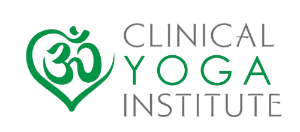Yoga has been gaining popularity as a complementary therapy for mental health disorders, with more and more research showing its effectiveness in improving symptoms of various conditions such as anxiety, depression, and PTSD. Clinical Yoga training is now being utilized by mental health professionals to help patients manage their symptoms and improve their overall well-being.
Yoga is a mind-body practice that combines physical postures, breathing exercises, and meditation techniques to promote relaxation and reduce stress. It has long been known for its calming effects on the mind and body, and research has shown that it can be an effective tool in managing symptoms of mental health disorders.
One of the key benefits of using yoga as a complementary therapy for mental health disorders is its ability to reduce stress and promote relaxation. Stress is known to exacerbate symptoms of anxiety, depression, and other mental health conditions, so finding ways to manage stress is crucial for improving overall well-being. Clinical Yoga training provides individuals with the tools and techniques they need to reduce stress and promote relaxation, helping them to better cope with their symptoms.
In addition to reducing stress, yoga can also help improve mood and increase feelings of well-being. The physical postures and breathing exercises in yoga help to release tension in the body and promote the release of endorphins, which are neurotransmitters that are known to improve mood. By practicing yoga regularly, individuals with mental health disorders can experience a boost in their mood and overall sense of well-being.
Another benefit of using yoga as a complementary therapy for mental health disorders is its ability to improve concentration and focus. Many mental health disorders are associated with difficulty concentrating and focusing, which can make it challenging to perform daily tasks and engage in activities. Yoga can help individuals improve their concentration and focus by teaching them to be present in the moment and focus on their breath and movements. Clinical Yoga training provides individuals with the skills they need to improve their concentration and focus, helping them to better manage their symptoms.
Overall, using yoga as a complementary therapy for mental health disorders can have a positive impact on individuals’ well-being. Clinical Yoga training provides individuals with the tools and techniques they need to reduce stress, improve mood, and increase concentration and focus. By incorporating yoga into their treatment plan, individuals with mental health disorders can experience improved symptoms and an increased sense of well-being.
For more information visit:
Clinical Yoga Institute | Online Accredited Yoga Teacher Training
https://www.clinicalyogainstitute.com/
United States
Embark on your journey to become a certified clinical yoga practitioner with our evidence-based online yoga teacher training program. Tailored for mental healthcare professionals, our flexible learning schedule fosters a supportive community of like-minded peers. Earn 30.5 NASW CEUs as you progress towards becoming a skilled professional in clinical yoga.
